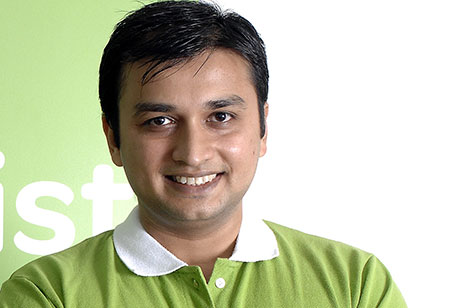By Vikram Vora, CEO, Mydentist

Vikram Vora, CEO, Mydentist
Over the last 10 years healthcare in India has been changing and the rate at which it is changing is continuously increasing. This change has been in the way patients are viewing healthcare services and products. There has been a metamorphosis of a patient to a consumer. And this is the cause of a paradigm change that India is witnessing in healthcare services. I have been fortunate that with Mydentist, we are in the vortex of the consumerism twister that is changing the way healthcare services will be selected, purchased and paid for in the times to come.
Whether it is dental, eyecare, physiotherapy, cardiac care, gynaecology, infertility management, diabetes management, nephrology, oncology or any other stream of medicine or its derivatives like pharmacy, pathology, diagnostics etc, in each of these areas, patients are getting more in more specific in their requirements.
This change has also given rise to a high level of cynicism amongst the service providers for patients who are well read and come with a basic knowledge about medical conditions, treatments and their costs. I keep observing this in our dental clinics. We get patients who are very specific on the kind of materials they want in their treatment, the procedure details, sterilization protocols and even probability of good prognosis. We have also observed a lot of dentist at Mydentists and also the support staff being very defensive to such patients. Infact they are not comfortable treating such patients. This discomfort arises out of a difference in expectations of the patients and the service providers. The service providers since years have been treating patients in very closed environment with little or no emphasis on patient education, transparency in procedure and pricing and setting expectations of patients on treatment time and prognosis. But, the patients in the last 10 years have changed in customers. Now, they want to know what is wrong with them, how is it going to be corrected and how much will they pay for it. This discord has given rise to a barrier between healthcare service providers and patients and most providers look at this discord which is termed as "Healthcare Consumerism" as a serious challenge to their business.
But, I think it’s an opportunity. Consumerism has always been a growth driver in any Industry. You can look at the growth of the Real Estate Sector due to consumerism brought in by companies like DLF, HDIL, Lodha and Hiranandani Constructions. Also, look at how the Fitness Markets have grown due to consumerism brought in by Golds Gym, Transform, Talwarkars and others. In Food and Beverages, consumerism was the cause of the growth of fastfood chains like Mcdonalds, KFC, A2B, Faasos, Dominos etc. Ask people over the age of 45 years if they had ever imagined the food and beverages industry to be like what it is today when they were in their 20s. Consumerism is growing the healthcare industry and it is just the beginning.
Consumerism is also improving quality of healthcare services in India. Unlike in the past, healthcare service providers have to answer questions of the patients. They have to compete on time of treatment. They have to compete on quality of care. They have to compete on pricing. They have to compete on manpower and human resources. The entire supply chain from Primary Care Clinics to Hospitals to Doctors to Tertiary and Specialty Care Providers to Diagnostic and Imaging Labs to Pharma Companies and finally Insurance companies is under stress to compete and to keep the consumer delighted.
There are a number of trends stemming from this important shift towards a focus on consumers. All health care stakeholders, including hospitals, insurance companies, pharmaceuticals, and clinics that ride these changes, may be in a better position to stay financially sustainable where patient satisfaction can make or break chances of success.
Here are some things that will help us understand health consumerism better.
1. Consumers are biggest winners of the trend: Consumers will benefit with lower costs and better quality of service in hospitals and clinics. With the advent of technologies that can track health statuses real-time, patients can proactively manage their health and become more involved in their treatment processes. In India, such a system will be a huge shift from our current doctor-driven care and result in patients making health care decisions along with their care providers. Digital health trackers and health apps are great examples of what a consumer-driven health economy will look like.
2. Hospitals, doctors and clinics need to up their game: Hospitals, clinics, and doctors will need to prepare and face a market which is driven by customer satisfaction or rather customer delight. In our current structure, these providers get paid for the number of services they provide such as number of patient visits, number of surgeries, etc. However, in a consumer-driven marketplace, they will be paid for reducing hospital stays, improving safety and quality, and providing tools for consumers to manage their own health.
3. Insurance Companies need to reinvent themselves: While health insurance marketplace is at a very early stage in India, it is still one of the fastest growing segments of business. Health insurers will have to carefully reinvent themselves by appealing to consumers who are increasingly involved in the health care landscape. In the west, insurance companies invest to build and provide systems, tools and technologies that help with prevention of diseases, real-time diagnosis, provide cost transparency so that consumers are not shocked to see their final bills, and pay for wellness programmes which have shown to reduce cost over the long run.
We use cookies to ensure you get the best experience on our website. Read more...